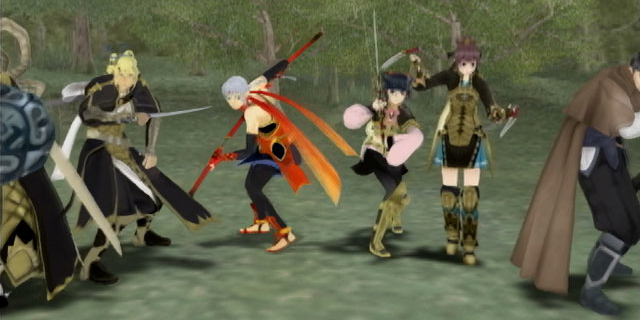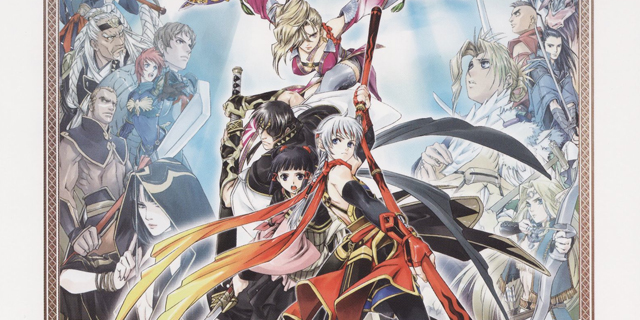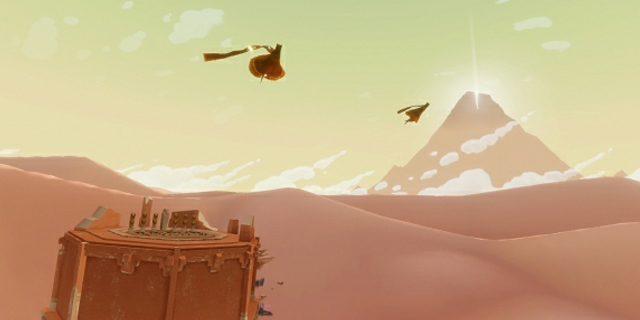
I recently returned from a trip to Las Vegas. Now that I’ve escaped the withdrawal symptoms associated with a week-long diet of prime rib and Red-Bull-and-vodkas, I can finally sit down and type. It was quite a trip. We plan one of these events every year or so. Some of us know each other from high school, or college, or the various sports teams that we play on. It’s always a good group. You’ll rarely find an unenthusiastic participant. And somehow, the trip usually lives up to the hype.
Anniversary profile
Serotonin
Author: Henry Skey (2012)
A column on emotion, and how games can make us feel.
I’ll spare you most of the details, but I have to talk about the two nights we spent gambling at the Golden Gate Casino. We spent 17 hours there in two nights, completely unscheduled. It helped that most of the tables were empty. It helped that most of the tables were a $5 minimum. It most definitely helped that they had the best, most enthusiastic dealers who happened to be female and scantily-clad. On their dealing breaks, they would dance behind the tables.
Most of us won money and all of us came away with more than a few stories. Looking back on it, we had the most fun when we were chatting with random people gambling beside us. There was the Dallas Cowboys fan with a sly grin. The British fellow who was eager to flash his two-tooth smile. Most were happy to find out we were Canadian, and were polite enough to listen to my 14 Canadian-themed jokes on loop. Random people, with absolutely no previous knowledge of each other, coming together to enjoy the shared experience of a game, semi-anonymously.
Sound familiar?

The casino floor is very much like the video game universe. People will have their favorite games, and new games will come and go, but the concept of risk and thrill-seeking is evident in both. We often gamble, whether it’s taking a hit on 12 or choosing between power-ups.
To be sure, there are areas in games which try to mimic the casino experience. Borderlands 2 has slot machines in Moxxi’s Bar, resulting in prizes such as cash, a live grenade (run!) or new guns, none of which match the $931 I won on the Carnival Mystery Machine years back in Vegas. Fallout: New Vegas has gambling as a major theme, and Red Dead Redemption gives you a chance to play various card and dice games. None of these are as compelling as the other parts of the game, so they’re not that memorable to me.
Besides, we take risks and gamble when we play games naturally. Danger is inherit to most situations in games you play, so you’re constantly taking risks. Do I go left or right? Do I go out of my way to save now, or do I keep going? I remember considering such a gamble in my playthrough of Suikoden V.
Suikoden V was a successful rebound attempt by Konami after the woefully-boring Suikoden IV. It changed graphic styles for the better. It had interesting characters, a well-built (albeit slow) story and constant reminders that this was a war you were waging, not a series of small battles or an angst-ridden teenage romance.

I wanted to finish the game quickly, since Final Fantasy XIII was coming out the next day. I don’t like leaving things unfinished, and I don’t like playing more than one game at a time. (It’s the small amount of OCD I have, other than making unnecessary lists with great glee.) I’d been at Suikoden V for quite a while that day, until it was 1 a.m. and I was about to enter the final dungeon. You split up into three groups.
Right away, you’re making choices like you would in a card game. You assess what you have. You consider the odds: will this party need a healer? How strong can this character get if I equip them with this item? Will the balance of each group be important? Should I stack one group? Who do I put with my main protagonist, and can he carry a group on his own? It’s tough, especially considering you have many, many allies to choose from. Maybe you haven’t properly trained 18 characters’ skills or equipped them appropriately. That might take a lot of time. Do you go back and train them or push forward, risking the few hours it would take to get to the end? At this point, you really have no idea how long it’s going to take.
The gaping maw of the dungeon entrance teases you. Come on, you’re ready. You haven’t had many problems with the rest of the game. You’ve been playing a long time, and have a good feel for the controls, attacks and enemies. What could possibly go wrong?

I took a gamble. I got through the dungeon, barely. It was longer and tougher than expected. I had decent levels and equipment, but my character’s skills were lacking. I hadn’t prepared as well as I should have. And, after hours of playing the last area, I was defeated by the end boss. Game over. Start again. The gamble failed; two hours lost, with nothing to show for it but the knowledge of what I can expect the next time. The dealer showed a bust card, only to draw a 10 and a 6 to beat your 19. Frustration is replaced quickly with mild anger. How could this happen? Do I even want to play again?
Games, like gambling at a casino, require patience and strategy. The outcome is not entirely random. Experience always helps. Even though I lost to the end boss, I now knew what the end boss was. I knew the routes of the dungeon better, so I could come back more efficiently by using fewer items and wasting less time. I went back and faced the end boss with a different party, bringing party members who had a higher magical defense and could resist the punishing magic blasts I’d received in my first playthrough. It wasn’t easy, but I won the second time. I could barely stay awake by the time I was done, but it was supremely satisfying.
Other gambles exist in games that force the player into a situation where victory is uncertain. In RPGs in particular, one tends to hoard items and one-time use powers until a tough boss fight. Now, upon the tough boss fight, do you use those items in your first playthrough? Or do you wait until you feel comfortable with the fight? Do you memorize the boss pattern at the sacrifice of dying a few times, or do you go full speed ahead and use all your tricks right away?

My gambling excursions at Golden Gate reminded me of a game I beat recently. My experience was enhanced by connecting with strangers. We didn’t introduce ourselves, not once. We were vague descriptions the next morning and hazy recollections. Nothing more. But oh boy, did we get along. We would high-five at every win, and curse the gambling gods with every loss. Winning solo was fine, but winning together was ten times more enjoyable. It sounds a lot like Journey.
Journey is an undeniable gem of a game. It is treat to play, to watch, to listen to and to talk about. It is from thatgamecompany, the developer behind the brilliant and underrated Flower. You play as a nameless wanderer, with a red cloak and a scarf that will let you perform a few actions. Your goal is to reach the summit of the mountain in the distance. There’s no narration, no dialogue and very few enemies. It is minimalist in design, but not on impact. The graphics are astoundingly beautiful, the controls are simple and it is pure pleasure to guide your avatar through deserts and mountains. Emotions will be evoked. It will surely be included in many top-ten lists this year.
One of the most interesting design choices in Journey concerns the multiplayer aspect. There is no option. Rather, you begin the game in the first part of the area. The servers randomly put you in the same game world with other players, who occupy various parts of the game. You can choose to travel with a partner, or you can choose to ignore them. The clever, and totally original, part comes from the fact that you cannot speak with these other human players. There are no names exchanged, and you can only see each other and chime with the push of a button. That’s it. It forces you to think differently about how to communicate.

Do you run up to the potential friend and chime incessantly? Or do you use a polite approach, letting them take the initiative? Once you’ve teamed up, how do you tackle puzzles? Who goes first? If you get separated, do you look for them? For how long? The end result is a surprisingly strong connection to somebody you don’t know. You share a wonderful experience, fleeting and impossible to duplicate. As you soar into the sky upon entering the game’s final area, you frantically look around to see if your partner has made it also. You have absolutely no incentive to do so, yet you do anyway. The game is designed to be beaten by one player, but isn’t it always better to have a friend along for the ride? As beautiful as the game is, playing by yourself can make you feel isolated and nervous. A fellow wanderer, singing at you and running alongside, can do wonders for your comfort level.
Upon completing the game, it gives you a list of the names of the human players you interacted with. Just a list of names. I think that’s best. These precious, few hours are best stored in memory and stories.
In all likelihood, I will forget the Dallas Cowboys fan who would hit on 13 like it was going out of style. I will forget the funny, friendly British guy who was in serious need of a dentist 50 years ago. Just like I’ll forget the names of the players who joined me on my Journey. But that doesn’t make their temporary friendship any less precious. My memories of Golden Gate and Journey are solidified as incredibly fun times, and that will never change. Suikoden V showed me that games often force you to gamble. You win some, you lose some.



















